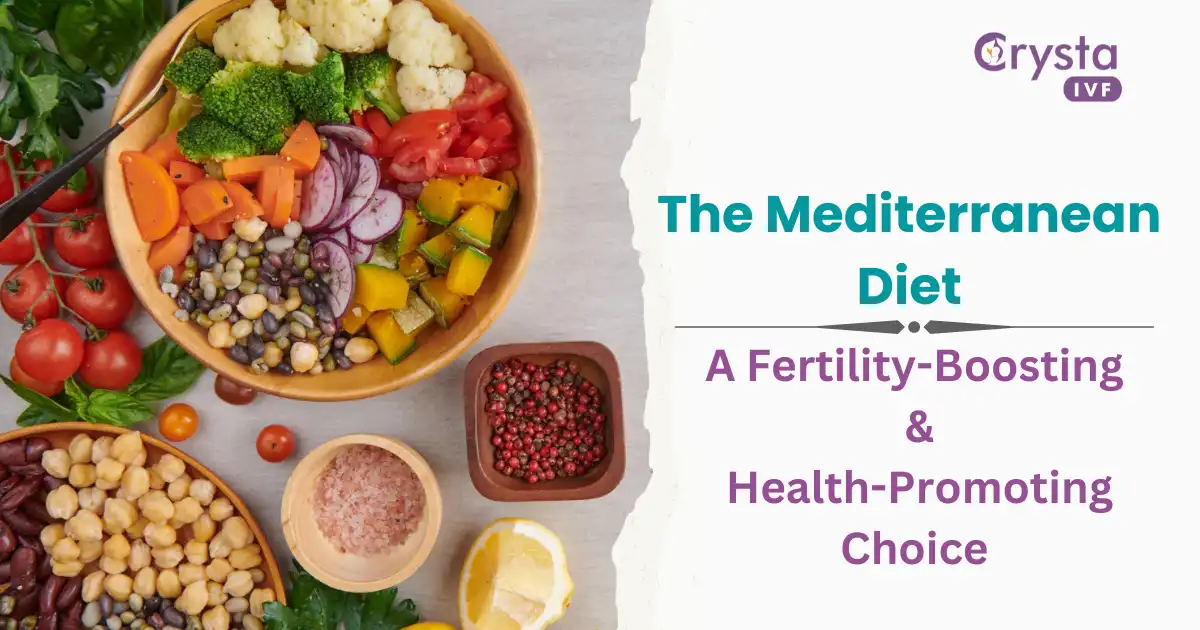The Mediterranean diet, known for its focus on plant-based foods like fruits, vegetables, and legumes, has long been recognized for its numerous health benefits.
However, a new study suggests that it may also positively impact fertility, making it an appealing and cost-effective option for couples struggling to conceive. By emphasizing whole, unprocessed foods and minimizing the intake of red meat and added sugars, the Mediterranean diet may support reproductive health and increase the chances of a successful pregnancy.
In addition to its potential fertility benefits, this diet has also been linked to a lower risk of chronic diseases such as heart disease and certain types of cancer.
Study Finds Mediterranean Diet May Improve Fertility
According to a review conducted by researchers at Monash University, the University of the Sunshine Coast, and the University of South Australia, the Mediterranean diet may positively impact fertility, assisted reproductive technology (ART) success, and sperm quality in men.
The review found that this diet, which emphasizes plant-based foods like fruits, vegetables, and legumes, and includes moderate amounts of fish and poultry while minimizing the intake of red meat and added sugars, may support reproductive health and increase the chances of successful pregnancy and ART outcomes.
Here’s what else the study found:
- The Mediterranean diet helps boost fertility health in both men and women.
- Women who include a Mediterranean-style diet rich in vegetables, seafood, and legume in their food have a higher chance of becoming pregnant.
- The diet is also linked to improved brain function, heart health, control of blood sugar levels, and more.
- Anti-inflammatory properties in Mediterranean food make it ideal with lots of polyunsaturated or healthy fats, flavonoids, and a limited amount of processed meat, which helps improve fertility.
Dr. Nidhi Sehrawet, a fertility expert at Crysta IVF, says, “Modifying preconception nutrition may be an important consideration for individuals trying to become pregnant, as it can help optimize fertility and support overall health.”
Mediterranean Diet: A Healthy Choice
The Mediterranean diet is characterized by a high intake of fruits, vegetables, whole grains, legumes, and nuts; a moderate intake of fish and poultry; and a low intake of red meat, processed meats, and added sugars. It also includes the use of olive oil as the primary source of fat.
Not only this, but a number of studies have shown that this diet may be associated with a lower risk of fertility problems, such as ovulatory dysfunction and polycystic ovary syndrome (PCOS) in women, and lower sperm abnormalities in men.
Some research has also suggested that a Mediterranean diet may be beneficial for improving fertility in couples undergoing assisted reproduction treatments, such as in vitro fertilization (IVF), a type of assisted reproduction technique where an embryo(s) is prepared outside of the uterus.
However, it’s worth noting that diet is just one-factor influencing fertility, and other lifestyle and medical factors may also play a role.
It’s always a good idea to consult a healthcare professional or fertility specialist for personalized advice on improving fertility and overall health.




